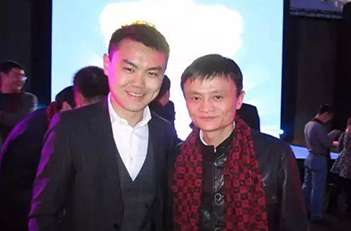Thowing myself into a countryside challenge
(Chinadaily.com.cn) Updated: 2015-06-29 15:24Q: What difficulties or problems did you meet during the gap year? Have you achieved the original plans?
A: I established a project called“Zhu Huang” in Yunnan province. In past decades local peasants in Lao Qunshan planted white kidney beans which used arrow bamboos. This led to those bamboos nearly becoming extinct and pandas starving. To solve the problem, the peasants asked me to help them. At first, I tried using plastic beanpoles to replace the arrow bamboos, but this failed because of the high cost. Later, I tried to remove Sichuan common beanpoles to replace arrow bamboos, but failed through a lack of negotiation skills. I felt frustrated and sorry for my promise to the peasants and even doubted my ability.
Finally, the peasants and I brainstormed to combine planting arrow bamboos with reforming the planting technology to solve the problem. This made me quite satisfied and confident, for I have made some contributions to Lao Junshan.
Q: What did you gain most when you look back your gap year? What is your greatest regret? What is the biggest change made in your attitude or habits?
A: I got to know facts about the remote villages and had a true understanding of unfairness in the world. Not only did I try to know about the village, but also encouraged them to solve environmental and livelihood problems. Working together has driven me a lot, the diligence of the peasants inspired me and their simplicity moved me. In the process of working together with them, I acquired the most important capacity which was to connect resources to solve problems, it means I am able to make use of what I learned to solve the challenges I met with. My biggest regret was not establishing a platform where I could skip a lot of intermediate links to help the peasants in the mountains make more hard-earned money. I will make more efforts to achieve that goal.
After putting the “Zhuhuang” Project into effect, manifesting the possibility of artificial cultivation of arrow bamboos, we planted 7,000 arrow bamboos in the two villages, reformed the traditional planting technology of white kidney beans and used the new technology planting experiment on the 200 mu of land.
Q: Please give two pieces of advice to freshmen wanting to experience a gap year.
A: If you have the courage to delay working to take a gap year, just be a little more daring, you might just as well regard the gap year as a lifelong career.
Gap year lasts just one year; pay attention to consider what effects you have make on the local residents after you leave. It is better to make your contributions benefit more local people rather than focus simply on your own achievements. It is more meaningful to let them rely on themselves and promote their capacity.
Q: What impressed you most during the gap year?
A: What impressed me the most was that a technician called Chen Lei invented a new planting technology for white kidney beans. When we invited him to train local residents, they were so enthusiastic that they would cycle to watch him set up the net rack for the beans. Hauling planting technology was the first agricultural technology training in the village, which took only half an hour. However, Chen was beset with residents from 9am to 3pm. He found nut trees hadn't been pruned, fertilized,girded or whitewashed, he couldn't bear to look at them and talked about nut trees with residents for two hours.
Before he left, he saw corn and potatoes needed attention and talked about pest control for an hour, finally they were very hungry but put up with it to listen to him for the whole afternoon.
This matter shocked Chen and me because we never thought that they almost had no knowledge about basic agricultural technology although they had planted for such a long time, no wonder the output was so low and the monthly income was only ¥2,000.
There are still a lot of things to do in the village and we expect that more people will help in future.











